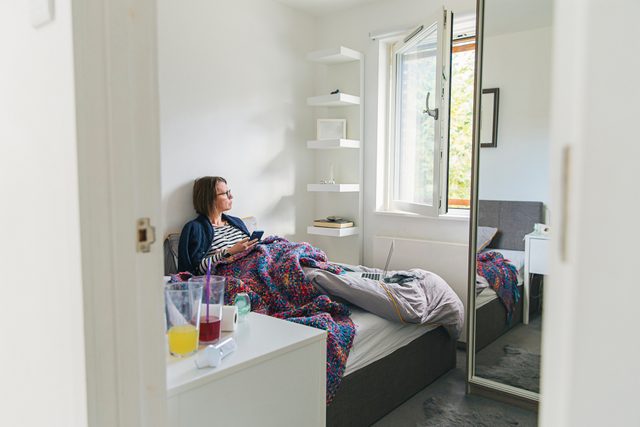
The “productive pandemic” trend
If you’re not doing live-streaming workout challenges, swapping recipes, or teaching yourself a new language, are you even quarantining? From celebrities to your next-door neighbour, it seems like everyone is brimming with productivity as they master yet another new coronavirus lockdown hobby. And then you realize you haven’t learned or baked a single thing because you’re eye-deep in work deadlines, caring for loved ones, and, you know, trying to flatten the curve by not getting sick or making other people sick.
You may be feeling the pressure to be your best productive self. You’re worried you’re falling behind or even “failing” at quarantine. The fear of missing out (FOMO) is real.
But relax, there’s no “right” way to “do” quarantine: Remember, the goal is simply to make it out safe and relatively sane and if you’ve done that, you’ve succeeded, says Jennifer Wolkin, PhD, a licensed clinical neuropsychologist and assistant professor of psychology at NYU. “This is a really unique situation we’re in and everyone handles stress and fear differently, so start by giving yourself credit for doing the best you can,” she says.
Whatever you are doing to cope with the COVID-19 pandemic is fine and you don’t need to feel bad or ashamed about it. This doesn’t mean you should give up on quarantine goals, but rather make sure you’re setting your own goals and not basing them off what others are doing, says Steven M. Sultanoff, PhD, clinical psychologist and professor of psychology at Pepperdine University in Malibu. One of the best ways to get rid of FOMO is to reconcile your quarantine expectations with reality.
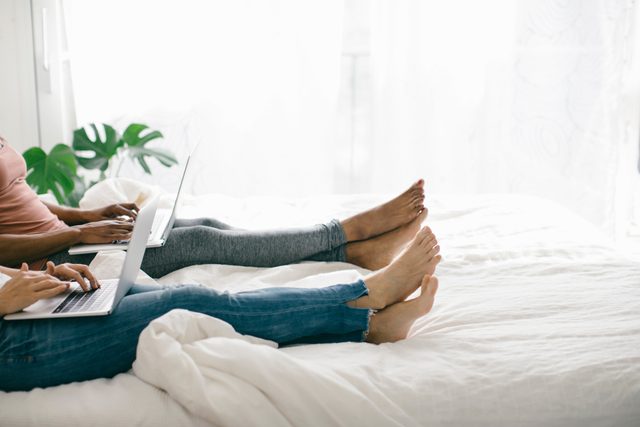
Expectation: I will win quarantine
It’s human nature to compare yourself to others—and with social media, there are endless options—but the coronavirus pandemic and quarantine has really increased this tendency, Wolkin says. Before you beat yourself up for falling into the comparison trap, know there’s a good reason for it. Constantly watching others during this pandemic can help you feel more connected to others, deal with boredom, and gives you a small sense of control, she explains.
Competing against the crowd comes with a big downside. “Comparing yourself to others gives them power over you and makes you feel like you’re not enough,” she says. “This increases the pressure and stress on you which can lead to some very real suffering.”
Reality: Instead she says, set realistic challenges, like spending more quality time (and less binge-watching time) with your “quaranteam” (the ones in your house or on Zoom). “You can be gentle and loving with yourself while still holding yourself accountable,” Wolkin adds.
Here are the Canadians you should follow on social media during the pandemic!
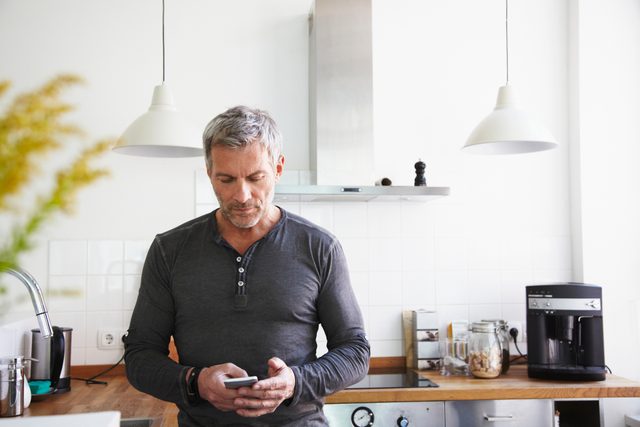
Expectation: I should be doing more
A lot of these feelings of FOMO can be traced back to one little word: Should, says Sultanoff. “Every time you think you ‘should’ be doing something, ask yourself ‘why,'” he says. “For instance, should you be learning to play the recorder right now? Really? Is that a rule of quarantine?” The problem with this word is that it frames things in a negative way, making you feel pressured to do them and guilty and upset when you don’t.
Reality: “Instead of making rules for yourself based on what other people are doing, take a minute to ask yourself what you want to be doing and then phrase it in a positive way,” he says. “If you don’t want to learn a musical instrument then there’s no reason you should but if you do, then say, ‘I want to learn to play the recorder.’ You may end up doing the same thing but it will feel a lot better because you’ll be doing it for you.”
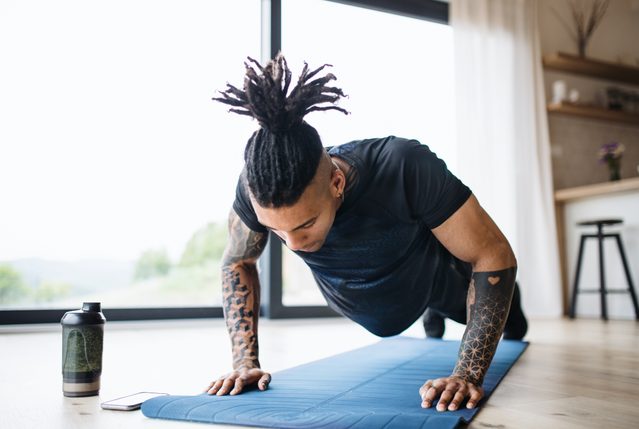
Expectation: I will be super fit
Exercise is one of the best things you can do for your mental and physical health. However, that doesn’t mean you have to jump into a 30-day social-distance shred challenge, Wolkin says. “Remember, not everyone is what they seem online and lots of those bodies are photoshopped; comparing yourself to unrealistic images can really hurt you,” she says. “Plus that extra stress works against your health goals because stress increases fat storage and lowers your immune system—the last thing you want to be doing right now.”
Reality: Set a fitness goal that you feel happy about and work towards that in a gentle way, she says. “Do what you can and know that may change from day to day and that’s okay,” she says. “When it comes to fitness, doing anything is better than doing nothing,” Sultanoff adds.
Check out these household items that are fitness equipment in disguise!
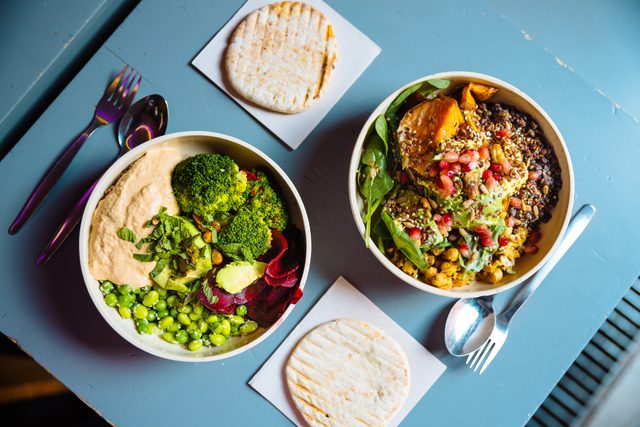
Expectation: I will eat super healthy and lose weight
Quarantine weight-loss transformations are one of the hottest topics online right now as people see this as the perfect time to lock down their diet. However, you’re also locked down with your fridge, so it’s not surprising that binge eating is on the rise. “Stress eating isn’t a great coping mechanism but it’s a very natural one and food is a powerful way people comfort themselves,” Wolkin says. “It’s all about the scarcity mindset. The pandemic has made us afraid we won’t be able to get what we need so people may over- or under- eat as a way to deal with those scary feelings.”
Reality: “Don’t shame or judge yourself, just make an effort to be more mindful about what and how you eat,” she says. This means eating at a table, using dishes, at routine meal times and without distractions.
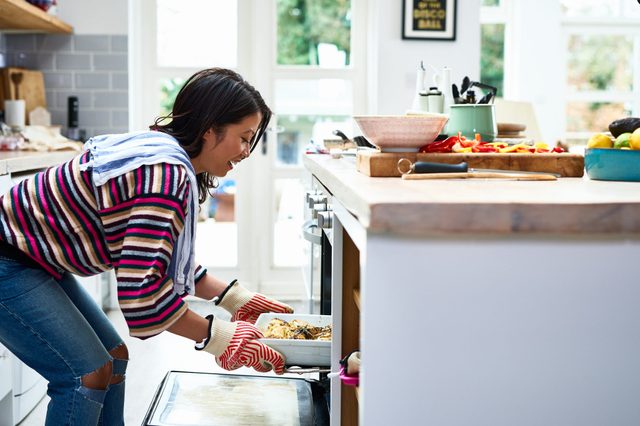
Expectation: I’m going to cook three healthy gourmet meals a day
Just looking at all the fancy cooking pictures online is enough to make you drool (so much fresh bread!) but quarantine isn’t going to magically turn you into Julia Childs. This is particularly true if you didn’t enjoy cooking before, Sultanoff says. “Recognize your limitations in food, knowledge, and equipment and cut yourself a break,” he says.
Reality: A lot of us have to cook right now, not because we love it or we’re great at it, but because it’s necessary and it’s important to realize that, he says. “Whether you’re making Ramen or lasagne, see cooking as a gift you are giving to yourself and your family and it will feel like less of a chore,” he says.
These easy bread recipes are perfect for beginner cooks!
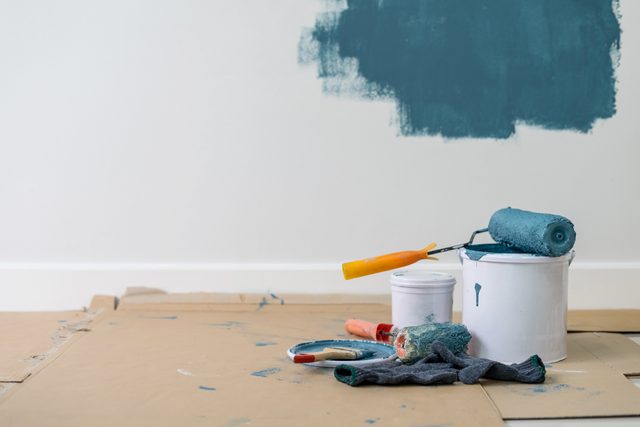
Expectation: I will redecorate my house to look amazing
Home transformations are almost as common as body transformations; you can’t scroll for more than a minute through Instagram without seeing someplace #cozy #minimalist #quarantinechic. It’s enough to make you want to resort to a tent in your backyard. “Remember, you’re not seeing the messy rooms, people don’t like to show the bad stuff,” Wolkin says. “Focus on what you need to feel happy and safe in your own home and that’s all you need.”
Reality: “Stop looking at social media!” she says. “Then you can feel free to clean, organize, or redecorate however you like. Or, don’t. If you like things the way they are, that’s fine too.”
Consider trying these simple ways to support small businesses in your area.
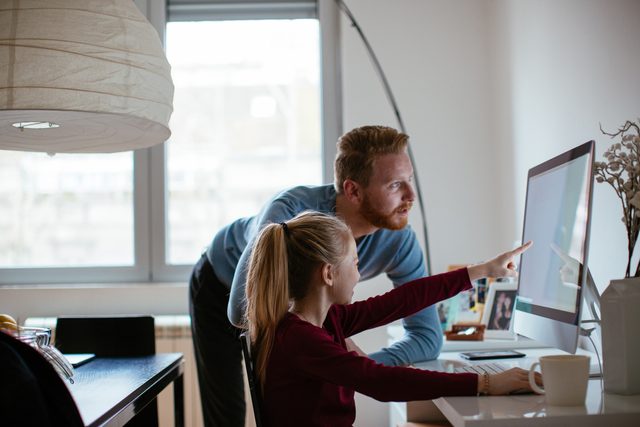
Expectation: I will be the best at homeschooling for my kids
With so many school children doing remote learning from home, there can be a lot of pressure on parents—many of whom are also still working from home—to add “professional teacher” to their list of jobs. For the sake of you and your children, you’ve got to let this one go, Wolkin says. “The parent-shaming during this pandemic has been out-of-control and it’s causing people a lot of unnecessary pain and guilt,” she says.
Reality: “For a child, the most important thing is to feel loved and safe, academics are a distant second,” she explains. “Do your best to keep up with school stuff but don’t stress yourself or your child over it.”

Expectation: This will be a second honeymoon
If you go by social media, everyone else is drinking champagne by the fire and having wild sex five times a day. So if you can’t even stand to be in the same room as your spouse—Why do they breathe so loud?!—it can make you wonder if you’re headed for a divorce. “Quarantine puts some unique stressors on relationships and if there ever was a time to be patient and prioritize communication, this is it,” Wolkin says. “It’s fine, and even healthy, to not want to be around your partner 24/7, it doesn’t mean you don’t love them.”
Reality: “Set aside regular times to talk about your relationship,” she says. “Your partner can’t read your mind so be really open about what’s hard for you and what your needs are. Then you can work together to find ways to nurture your unique relationship.”
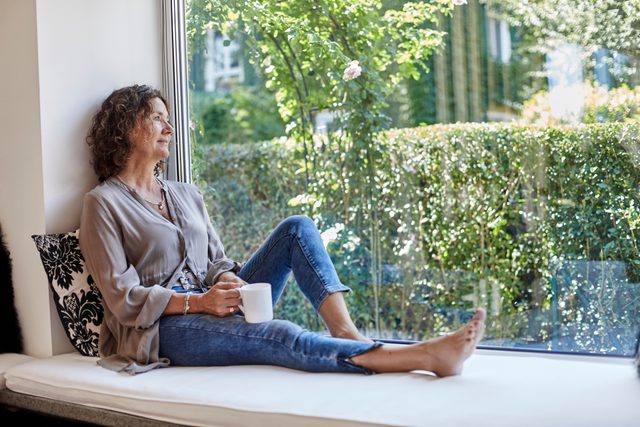
Expectation: I’ll be an extra social butterfly
If there’s one thing social distancing has really changed, it’s how we socialize. This can be particularly difficult for people who have to quarantine alone, Sultanoff says. “Feeling isolated is terrible but being alone isn’t necessarily bad, some people love being alone and there’s no reason to feel guilty about enjoying the solitude,” he says. But if you are feeling lonely and isolated, it’s important to take the first step and reach out to others, he says.
Reality: You don’t have to become a social butterfly if that’s not your personality. Whether you’ve become the online hub for all your friends or you’re just maintaining contact with a few loved ones, the point is that you’re communicating with others on a regular basis, he says.
Here are more everyday habits that could change forever after COVID-19.
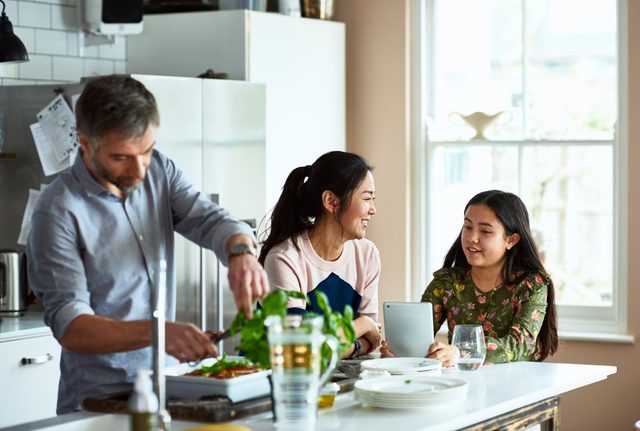
Expectation: I’m going to love all the extra family time
On the other end of the spectrum, you have people who are quarantined with lots of other people. The expectation is that you will want to play all the board games, watch all the movies, and enjoy every moment of family bonding. Or is it bondage? “It’s easy to feel overwhelmed by all the socializing—particularly if you’re naturally more introverted, Sultanoff says. “It’s okay to take some time to yourself to just breathe.”
Reality: “Designate somewhere that is your own physical space and schedule time each day to retreat to it, alone,” he says, adding that walks outside or sitting in your yard can also be good opportunities for alone time.
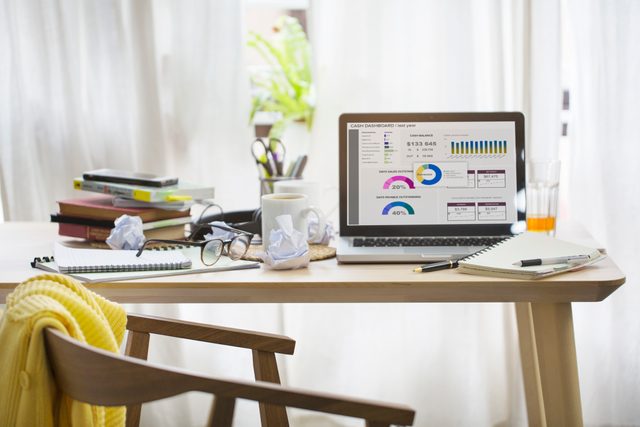
Expectation: Nothing is going to change with work
Nearly everyone has been affected professionally in some way by this pandemic and it’s unrealistic to think that you’ll be able to maintain the same level of work as you were before, Wolkin says. People who lost jobs may experience an extra level of guilt and shame, worrying that they weren’t good enough. “If you’ve lost work, know that it wasn’t your fault, you didn’t deserve this, and you couldn’t have prevented it,” she says. “Don’t make this economic disruption personal—your job doesn’t define you as a person.”
Reality: Set aside an “office” and schedule regular work hours, doing your best to do your job, then resist the temptation to either slack off or become a workaholic, she says. “You have to keep the big picture in mind, this isn’t going to last forever,” she says.
Be sure to adopt these tips to stay healthy while working from home.

How not to fail at quarantine
Whenever you feel FOMO, one of the best things you can do is to simply treat yourself and others with extra kindness and gentleness. “Kindness kills competition,” Sultanoff says. If you’re not feeling very kind or connected, laughter is powerful medicine. “Humour has physical, emotional, and cognitive benefits,” he says. “Nothing helps you regain perspective and remember that we’re all in this together like a good joke!”
Reality: Go read funny quarantine quotes, check out coronavirus memes, watch funny videos, listen to hilarious podcasts and then make sure you share them with others and spread the love.
Next, check out these acts of kindness during the COVID-19 outbreak.